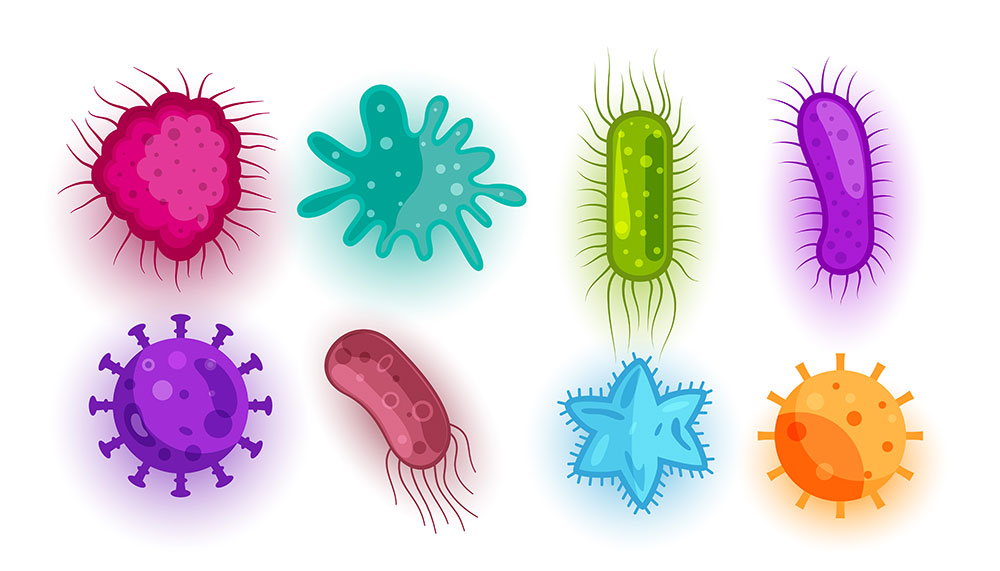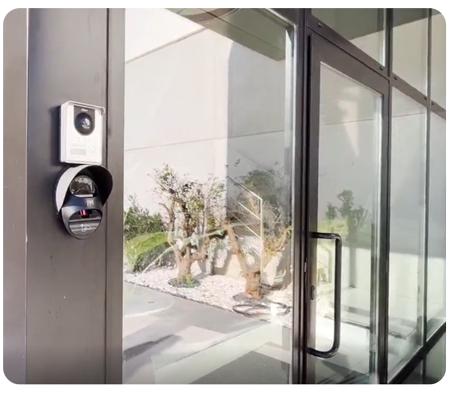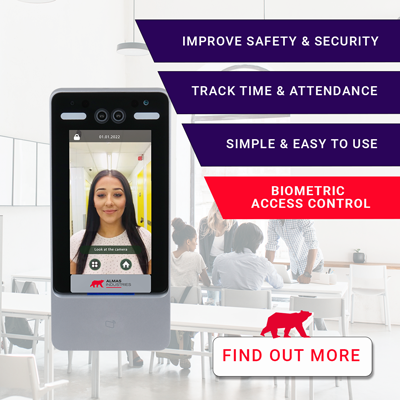

Blog
Coronavirus: How biometrics can help the fight against COVID-19
Almas Team

Recent worldwide news coverage on the Coronavirus has caused people to become understandably scared about touching shared surfaces. This could include biometric fingerprint readers or hand scanners. We can see that due to the smaller surface area of the lens readers present less of a breeding ground for viruses or bacteria to linger. Still, at Almas, we know that biometric fingerprint readers could actually improve hygiene and could help stop the spread.
With the worldwide impact of the Coronavirus pandemic multiplying exponentially, it seems very relevant to consider viruses, bacteria and transmission. What is the difference between a viral infection and a bacterial infection? What steps can we all take to stay healthy? And how can biometric readers help prevent the spread of disease?
Bacteria vs viruses
Bacteria cause bacterial infections, and viruses cause viral infections. Perhaps the most crucial distinction between bacteria and viruses is that antibiotic drugs usually kill bacteria, but they aren’t effective against viruses.
Bacteria
Bacteria are single-celled microorganisms that thrive in many different types of environments. Some varieties live in extremes of cold or heat. Other, symbiotic bacteria make their home in people’s intestines, where they help digest food. Most bacteria cause no harm to people, but there are exceptions. Some bacteria (Torulopsis Glabrata) can cause violent illnesses and can survive for up to five months on inanimate surfaces. Infections caused by bacteria include Strep throat, Tuberculosis and staphylococcus.
Viruses
Viruses are even smaller than bacteria, but they require living hosts — such as people, plants or animals — to multiply. Otherwise, they can’t survive. When a virus enters your body, it invades some of your cells and takes over the cell machinery, redirecting it to produce the virus. Diseases caused by viruses include chickenpox, AIDS and the common cold. Starve the virus of hosts, and it will die relatively quickly and thereby reduce the spread. Coronavirus tests indicate that the virus survives anywhere from several hours up to 2-3 days on plastic and stainless steel. Still a lot less time than bacteria. A big problem with viruses is that carriers can spread them before symptoms even begin to manifest. Viruses on their own cannot multiply and must infect the cells of a living creature to reproduce.
Virus transferral
With the arrival of the Coronavirus, hygiene is more important than ever if we want to stop the spread of disease and ensure that we all remain healthy.
At the moment, no-one knows precisely how the Coronavirus spreads from person to person. However, as it is a virus, it is most likely that it transfers in the same way that the common cold or flu does, via airborne droplets.
Cold and flu virus-laden droplets may remain infectious for several hours, depending on where they fall. Viruses generally remain active longer on stainless steel, plastic and similar hard surfaces than on fabric and other soft surfaces. Other factors, such as the amount of virus deposited on a surface and the temperature and humidity of the environment, also determine how long viruses stay active outside the body.
It is possible to catch a virus after handling an object an infected person sneezed or coughed on a few moments ago. But personal contact with an infected person — such as a handshake or breathing in droplets from a cough or sneeze — is the most common way these viruses spread.
Are door handles a danger?
It is virtually impossible to avoid contact with everyday communal objects such as door handles, taps, shopping trolleys or toilet flushers. Many studies have highlighted that door handles are potentially the most common means by which bacteria is transferred from person to person.
The isolation of microbes contaminating door handles is well documented (e.g. Rusin et al. 2002, Nworie et al. 2012; Onwubiko & Chinyeaka 2018). Ruskin and his colleagues demonstrated that the numbers of bacteria transferred from door handles to hands, and then hands to faces were high. Interestingly, standard door handles were more contaminated than round door handles. This may be because the bigger the door handle surface, the easier it is to clean (Fakhoury and Nawas 2018).
A further study undertaken at a hospital in the US found that lever handles sported the highest ratio of bacteria contaminants per use (6.38), followed by pull handles (2.24), then push plates (1.2). They theorise that this difference may be because pull handles and levers require more hand contact to open the doors, leading to a higher concentration of bacteria on the handle.
Biometrics are better
Recent worldwide news coverage on the Coronavirus has caused people to become understandably scared about touching shared surfaces. This could include biometric fingerprint readers or hand scanners. We can see that due to the smaller surface area of the lens readers present less of a breeding ground for viruses or bacteria to linger. Still, at Almas, we know that biometric fingerprint readers could actually improve hygiene and could help stop the spread.
Placing wall mounted hand sanitiser dispensers next door to readers and educating people to use it before using the reader, means that not only is the small lens of the reader not contaminated, but the larger, more germ-ridden area of the door handle is kept uncontaminated too.
Biometric readers and maglocks often replace lever door handles, reducing contact with the door itself as you don’t need to touch a handle to push the door open.
In the event of someone becoming ill (for example with Coronavirus), the software will show who entered the building and when. This data would allow you to see quickly who entered the building next. Steps could then be taken to help prevent infection from spreading
How best to protect yourself (and everyone else)
Variations in virus strains, as well as the surfaces they’ve transferred onto, mean that it’s better to take precautions rather than run the risk of infecting yourself or anyone else. The best practice is:
- Promoting frequent hand washing
- Providing hand sanitiser
- Making sure offices are cleaned regularly
- Educating staff so that they don’t come to work when ill
These steps will help to keep you healthy and well, by preventing the spread of infection. It also has the knock-on effect of lowering staff absence levels, which then saves time and money, and it makes for a much happier workplace.
Almas is committed to supporting all of our customers during this period of uncertainly. Our readers are designed with safety in mind, and we believe that they are a practical solution which can help to prevent the spread of disease.
If your business has to go into shut down mode, are you confident your premises will be protected and secure?
Contact the team at Almas Industries today to discuss biometric access control, biometric readers, or facial scanners for your business. You can call us on 0333 567 6677 UK or 01 68 333 68 Ireland – Or drop us a confidential email to enquiries@almas-industries.com.



